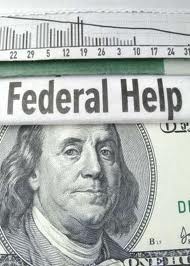 Since its inception in the wake of the Great Depression, the Federal Housing Administration (FHA) has intervened on behalf of American homeowners and the important real estate market on various occasions. After the bursting of the housing bubble that started in the early 21st century, efforts by the FHA to rescue what was left of the housing market after it collapsed have taken a heavy toll on the agency.
Since its inception in the wake of the Great Depression, the Federal Housing Administration (FHA) has intervened on behalf of American homeowners and the important real estate market on various occasions. After the bursting of the housing bubble that started in the early 21st century, efforts by the FHA to rescue what was left of the housing market after it collapsed have taken a heavy toll on the agency.
According to recent financial reports issued by the FHA, the pace of mortgage and housing assistance that the agency has rendered over the last few years has left a significant deficit. The FHA is always expected to experience losses due to its role as a guarantor of last resort and its willingness to assume risks on behalf of homeowners and lenders, but the agency's current reserves are not sufficient to meet its potential losses. This revelation comes at a time when President Barack Obama counted on the FHA to execute from housing rescue programs.
Mortgage Insurance
The Obama administration has already moved to shore up the ailing FHA. The plan is to increase the amount of mortgage insurance premiums that borrowers are expected to pay when their mortgages are approved and backed by the FHA. The policy terms are also expected to increase, thereby increasing monthly payments made by borrowers. This might not be enough to ease the $16.3 billion that the agency could potentially lose if their loan portfolio fails.
Last-Resort Refinancing
Since Fannie Mae and Freddie Mac are unwilling or unable to refinance certain mortgages that are hopelessly underwater and in danger of going into foreclosure, President Obama had envisioned tasking the FHA with accepting these refinances as a way of rescue. Now that the FHA requires a bailout, the agency's ability to rescue troubled borrowers is being questioned.
Loan Limits
At the insistence of several legislators over the last few years, the FHA has been taken on greater risks on mortgage principals as high as $729K in some housing markets. The problem with these increased loan limits is that the FHA is now limited in its capacity to guarantee more down-to-earth mortgages.
Down Payments May Increase
While mortgage lenders across the nation are demanding down payments as high as 20 percent from their applicants, the FHA accepts as little as 3.5 percent. Now that the FHA is in a perilous financial situation, minimum down payments may have to be increased to 5 percent in order to lessen the agency's risk –once again placing the burden on mortgage applicants.



